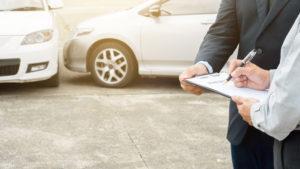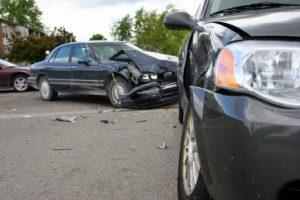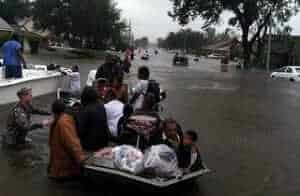
When you or another driver in your car has an accident, your insurer will be responsible for any injuries or property damage caused but only to the extent of your responsibility in causing the accident. Like most other states, Louisiana insurance laws follow a traditional fault-based system. This means that every driver is financially responsible for any injuries or property damage to the limit of their contribution to the accident.
Insurance laws also follow policy limits regarding the amount of maximum compensation (coverage) and coverage type allowed except in special circumstances.
Louisiana’s Insurance Policy Laws
Every car on the road in Louisiana is required to have liability insurance. The minimum coverage limits under the law are given by the 15-30-25 rule:
- $15,000 minimum coverage to cover bodily injury or death or one person in the insured vehicle, usually the driver
- $30,000 minimum coverage for two persons injured or killed by the driver of the insured vehicle
- $25,000 coverage for damage to somebody else’s property or vehicle
Unless you have a higher policy such as comprehensive insurance, these are the maximum amounts that your insurance company can cover after an accident. However, if you suffer significant injury and require long-term medical care, you can also choose to file a liability claim against the at-fault driver. If successful, the other party’s insurance company can pay for your pain and suffering.
Since Louisiana is an “at fault” state, you are still entitled to a share of any settlement made even if you were partly responsible for the accident. It is not unusual to have large settlements in such cases, going into the hundreds of thousands and millions of dollars. If you have had an auto accident and want to sue, get in touch with us now and let us get you the financial compensation you deserve.
“Permissive Use” Regulations
Knowing who your insurance policy covers begins by understanding “permissive use”. While your spouse or children may be automatically covered, special circumstances could leave you liable depending on your policy’s terms.
Named Household Members
Auto insurance coverage extends to close family members, friends, and other qualified people who drive the car with your permission. In the case of an accident, they will receive compensation for injuries or property damage up to the limits of the policy.
Most insurance companies require you to list all household members who can legally drive the car. Sometimes, you can also extend this coverage to other family members related to you by marriage, adoption, or blood. These “named drivers” should also include anyone in your household who regularly drives the car, such as nannies and siblings.
Sometimes, you want to exclude somebody who lives in your household from your cover. For example, a person with a bad history of DUIs and substance abuse could cause your premiums to rise drastically or have your coverage canceled altogether. In this case, it would be beneficial to strike that person away from coverage.
Lending Your Car to Friends and Acquaintances
The “permissive use” policy also extends to other licensed drivers to whom you may lend your car. For example, if you let a neighbor borrow your truck as they move to another house or when an in-law borrows your car while theirs is getting repaired, they would be covered under “permissive use.”
In all these circumstances, “permissive use” cases rely on your having given your “express or implied permission” to the other party to drive the car. Some insurance companies may have higher premiums or provide less coverage for such cases.
Unlicensed or Inexperienced Drivers
The people you allow to drive your car should be licensed and legally able to operate the motor vehicle. While allowing teens and unlicensed people to drive your car does not make them or you automatically liable in the case of an accident, it exposes you to liability claims and personal injury lawsuits. Any injury or property damage caused by an unlicensed or inexperienced driver with your permission could come out of your pocket.
As such, it is good practice to only give your car to drivers who are themselves duly licensed drivers that you know well.
“Business Use” Coverage
Another exception in insurance coverage involves “business use” or commercial use of a private car. For example, if you carry a paying customer in your car or lend it to a friend who uses it to visit clients or make deliveries, it is likely that your insurance policy won’t cover them in case of an accident.
Any commercial use of a vehicle requires the relevant licensing and commercial auto insurance. Insurance companies have bespoke policies for small businesses such as delivery insurance, chauffeur insurance, or private hire (Uber, Lyft, etc) insurance.
For a free legal consultation, call 800-537-8185
When You Have an Accident Driving a Borrowed Car
Does your insurance policy also cover you if you borrow another person’s vehicle and have an accident while driving it?
Yes, the insurance policy of the vehicle’s owner should cover your injuries and any damages to the specified limits. This is what it means for auto insurance to follow the car. However, there are also some exceptions surrounding these rules.
- When you have borrowed a car, your insurance can provide secondary coverage if the extent of your injuries exceeds the owner’s policy limits.
- Similarly, your insurance should cover a person who drives your car with permission to the maximum of its limits. Their own policy can provide them with secondary coverage if they require extra medical care.
- When the car has uninsured passengers or hits uninsured pedestrians, your insurance company can provide coverage or sue the at-fault party’s insurer on your behalf.
- If it is clear you did not give your permission, the driver’s insurance will be solely liable for the injuries or damages caused.
In general, it is a good idea to review the relevant insurance policy for the specific wording before borrowing or lending a car. Of course, if you are not at fault in the accident, this doesn’t matter as the at-fault driver will be liable for the damage and injury they cause to you.
Hire a Louisiana Auto Accident Attorney Today
If you had a car accident and are worried about the extent of your liability or coverage, let Morris Bart help you. Through our many years of experience handling personal injury and auto accidents here in Louisiana, we have represented thousands of clients and won.
Whether you are at fault or not, an auto accident attorney can help you fight the insurance companies and get maximum compensation. If you get sued, we will also fight for you and ensure that justice is done. Call us nowand get a free consultation on your auto accident inquiry.
Questions?Call 800-537-8185
to find a Morris Bart office near you.





